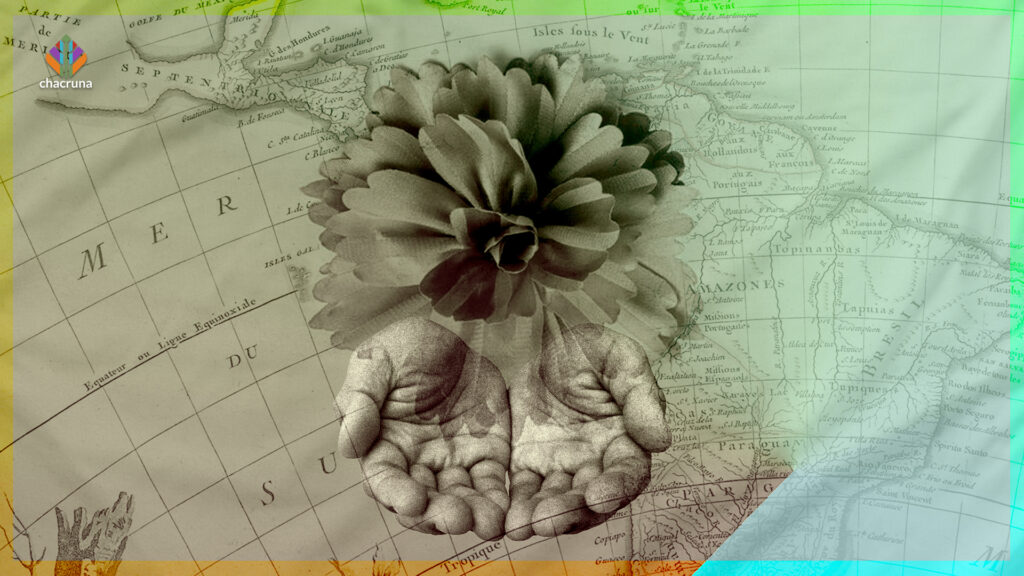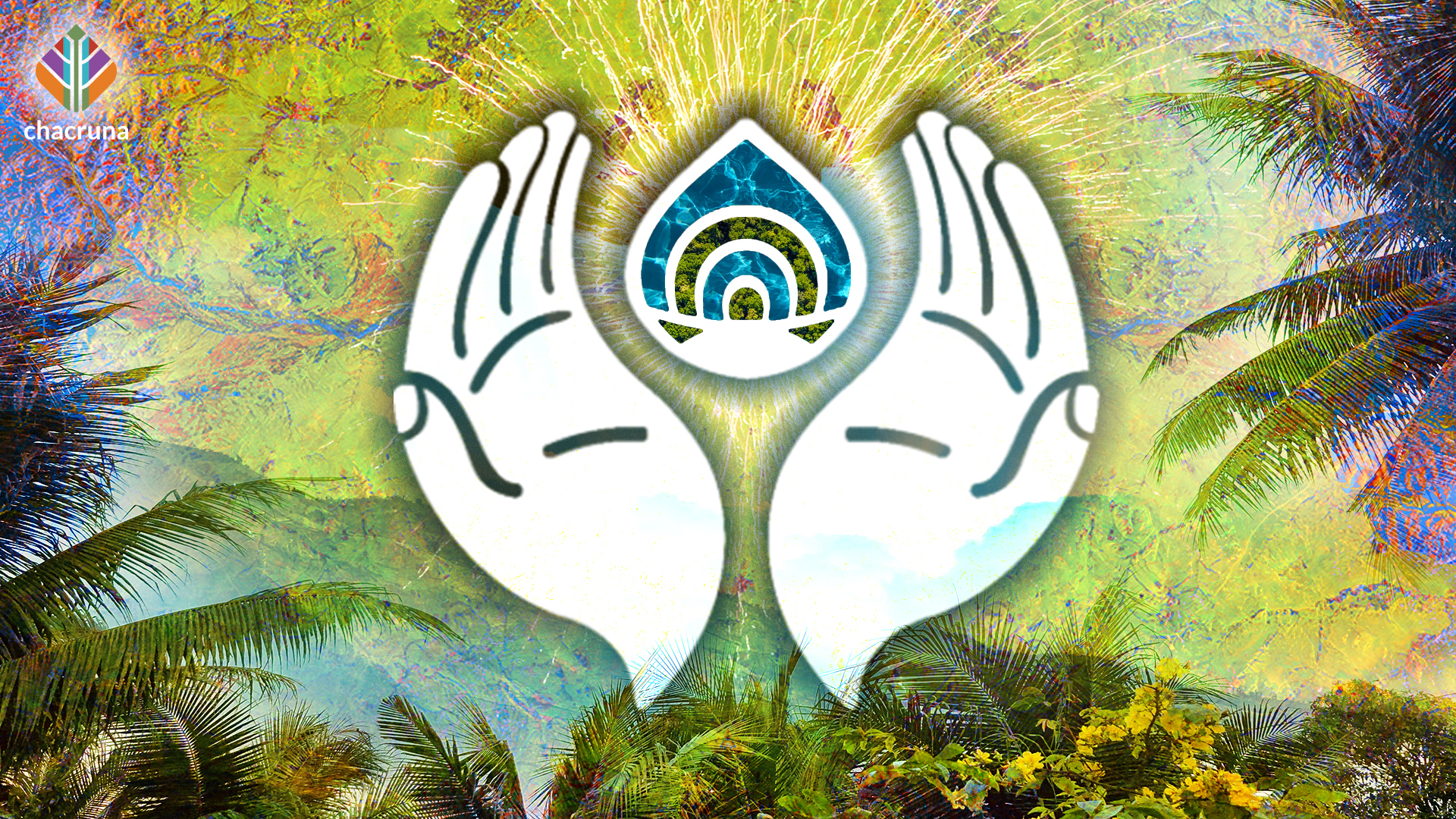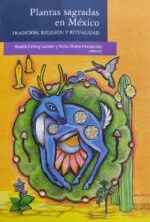- Ten Tips for Standing in Solidarity with Indigenous People and Plant Medicines - January 18, 2024
- Indigenous Reciprocity Initiative of the Americas: A Respectful Path Forward for the Psychedelic Movement - April 23, 2022
- Supporting Indigenous Autonomy Means Participating in a Story of Relationship - December 10, 2020
- Chacruna Survey Results on the Awareness of Sexual Abuse in Ayahuasca Settings - January 31, 2023
- Indigenous Reciprocity Initiative of the Americas: A Respectful Path Forward for the Psychedelic Movement - April 23, 2022
- Creating Awareness on Sexual Abuse in Ayahuasca Communities: A Review of Chacruna’s Guidelines - February 8, 2022
- Rethinking Power, Plants, and the Future of Psychedelic Culture - May 9, 2025
- Where Is the Psychedelic Movement Headed Next? - October 15, 2024
- The FDA’s Rejection on MDMA-Assisted Therapy: What is Next for the Psychedelic Movement? - August 16, 2024
What Does it Mean to “Embody Reciprocity”?
As the “psychedelic renaissance” thrives, the psychedelic community finds itself navigating the merging realms of social, ecological, and political currents that can reflect the interconnectedness of the natural world often illuminated by the psychedelic experience. The dizzying momentum of the psychedelic movement’s rapid trajectory towards an unknown future threatens to hurdle straight past such delicate interconnectedness, without a moment to pause and reflect on our position at this intersection of global capitalism, healthcare and criminal justice reform, environmental conservation, and Indigenous rights. A movement comprised of multiple stakeholders—seekers, practitioners, business leaders, investors—that face the difficult task of orienting themselves amidst the competing and conflicting goals of private enterprise and collective liberation and healing for themselves and the planet. In light of these circumstances, it is important to be properly oriented so as to recognize our distinct positions within this broader system. If we can understand the historical and contemporary context of the issues we’re confronted with, then we can begin to ask how to properly honor the relationships among which we are participants. The myriad tensions of this moment emerge from a situation of inequitable imbalance: a political history of ongoing colonization, global wealth disparities, ecological imbalance manifesting a cascade of environmental catastrophes coinciding with a growing climate crisis, a global pandemic (Bloomfield et al., 2020; Lambert, 2020), an economic imbalance driving “diseases of despair” (substance use disorder, depression, suicidality, etc.) and the disempowerment of local communities.
In this regard, Chacruna’s fund has sought to support groups working on the ground to solve local problems in the regions that are scarred by historical injustice as well as the inequalities brought about by psychedelic tourism itself.
Proposed solutions are complex and various; clearly, significant change is needed at the local and outer systemic levels, in the immediate and the long-term. However, there are certain principles that we can align with to allow for direct, impactful progress towards a regenerative and just psychedelic industry. The concept of “reciprocity” is meaningful across stakeholders (recognizably, in different ways), yet it does provide a crucial meeting ground for our collective efforts to right such imbalances. Chacruna’s Indigenous Reciprocity Initiative of the Americas (IRI) is an effort to ensure that there is an accessible portal for reciprocity to flow in ways that are not strictly entrenched in the psychedelic industry but rather in the broader worlds from which psychedelics sprout forth and where social movements and initiatives exist that are not consumed by or trapped in non-Western-facing activities. In this regard, Chacruna’s fund has sought to support groups working on the ground to solve local problems in the regions that are scarred by historical injustice as well as the inequalities brought about by psychedelic tourism itself.
While more and more people see the benefits of psychedelic medicine in their own lives, they also recognize the urgent need to support both the environment and marginalized communities who are the most vulnerable to the devastation caused by deforestation, economic instability, food insecurity, and lack of political autonomy. If one were to step back and consider the histories of the regions from which psychedelics emerge, including the “pet projects” of Western-owned or influenced psychedelic centers in the Global South, we would be able to witness that there are groups who have long commitments toward local and environmental justice. IRI is designed with the hope of promoting Indigenous autonomy, agency, and self-determination. Recognizing local empowerment is the single most impactful lever for effecting positive social and environmental change. It offers an alternative to succumbing to an economic order—including those inspired by “good intentions”—that depends (directly or indirectly) on the exploitation of the most marginalized groups throughout the world and in the Global South. IRI’s approach offers a pathway for individuals and groups with shared concerns to contribute towards greater social and ecological well-being, including preservation of plant medicines in the environments and communities where they originate.
Costs and Benefits
Whether dealing with plant medicines or synthetic, second-generation psychedelics, the question of whether “psychedelic capitalism” can avoid recreating the same inequality endemic to conventional capitalism remains unanswered. Dave McGaughey of the Auryn Project questions whether any amount of good intentions can trump the inevitable consequences of a profit-driven industry that siphons resources from communities in the ultimate pursuit of shareholder returns (2021). Another important characteristic of capitalism as it relates to psychedelics, in addition to the upward transfer of wealth and externalization of costs, is the way that it necessarily divorces these medicines and practices from their cultural and ecological contexts, leading toward the commodification of plants and related practices through the entrepreneurships and industries that are built around them (Peluso, 2016).
With psychedelic plants, there is a tangible relationship between ourselves, our act of consumption, the histories that have made this act possible, and the ecological, cultural, and material cost of that medicine making its way into our hands. Even when using a synthetic psychedelic, or any other synthetic product, that relationship is further obscured, but it is still there at its core. Every scrap of plastic or wood or metal we see or touch comes from somewhere in the broader ecosystem, and there is no aspect of human life that is not ultimately reliant upon nature.
Our economic systems and the cultural-conditionings they produce inadvertently work toward separating us from the history and the production of the things we consume—from our medicine, to our food, to every single material or chemical compound that we use—all of it is ultimately extracted from a natural source and the labor that surrounds it or is demanded of it. When confronting the imbalances that underlie our social, ecological and economic crises, such relationships should be examined and understood; only then can the seeds of reciprocity take root. Whether you are working with second-generation psychedelics, synthetics, or natural plants, the principle of relationship is fundamentally the same.
Reciprocity and Righting Imbalance
“Reciprocity” as an Indigenous concept is variably expressed across cultures. In writing, it is commonly linked to the Quechua term “ayni,” and invoked along with Euro-American ideals of balance and harmony. Rather than associating it with colonial “noble savage” stereotypes, so often ubiquitous in psychedelic circles, deeper investigation of “ayni” reveals a world in a perpetual state of dynamic imbalance, whereby every living moment’s inherent disequilibrium requires constant vigilance and continual re-ordering (Allen, 2019). Those constant re-balancing efforts are all in service of societal well-being, itself informed by the animistic idea (frequently glimpsed at with the help of psychedelics) that “society” consists of both human and non-human persons (e.g., animals, forests, rivers, mountains). Life is only possible in relationship with a diverse society of beings, and reciprocity is an orientation prioritizing those relationships over individual human agency.
A commitment to reciprocity is an ongoing and consistent commitment to righting that imbalance; it must be strived for day after day, and can only take place within a system of relationships.
The reminder that reciprocity and well-being do not entail a mystical state of perfect harmony, but rather an “on-going relational process among all beings” (Allen, 2019, p. 9) is apt, especially when working within the same system responsible for the monumental injustices of colonialism in all its ongoing forms, including cultural, ecological and bio-piracy. At its core, IRI recognizes that the psychedelic industry profits from Indigenous knowledge. IRI takes it a bold step further by recognizing that Indigenous knowledge is made up of more than the token individuals, groups and projects associated with the psychedelic industry. A commitment to reciprocity is an ongoing and consistent commitment to righting that imbalance; it must be strived for day after day, and can only take place within a system of relationships.

The Indigenous Reciprocity Initiative of the Americas (IRI)
IRI is a grassroots network of 20 Indigenous organizations throughout the United States, Mexico, Costa Rica, Colombia, Ecuador, Peru, and Brazil, acting as a resource that promotes community-led projects. The community-led initiatives supported by IRI address everything from food security and environmental health, to economic and educational access, to land tenure and cultural conservation, and more. While the resource is open for anyone to directly support and learn about any of the participating organizations via their own channels, contributions to the IRI Program’s pool of funds are equally distributed to all 20 organizations, with Chacruna taking an administrative fee of 7.5%. This way, IRI is inclusive of Indigenous communities and movements that may not already be known to the psychedelic community and the global North in general. It also avoids creating an atmosphere where different groups struggle for the spotlight and compete to have their priorities recognized by an audience with different incentives than their own. Not every group in IRI explicitly uses psychedelic plants, and not all the initiatives are focused on psychedelics—this allows our platform to highlight other marginalized groups and environments that may not be as glamorous or carry the same appeal for psychedelics enthusiasts. At the same time, it brings in groups that may have been cut off from their ancestral lineages or lands due to legacies of colonialism and displacement, avoiding the limitations of intellectual property or access and benefit-sharing schemes.
IRI represents a deeper, more holistic form of connection that seeks to decouple Western perceptions of indigeneity from the tropes typically marketed and consumed in the psychedelic community. Psychedelics users in the Global North often view Indigenous communities as monolithic entities from which different plants and practices are freely appropriated, “a buffet of interchangeable ecologies and cultures” (Negrin, 2020). This is part of IRI’s decolonized approach, but also the deeper message that empowering Indigenous autonomy and self-determination is the most effective approach to planetary wellbeing. It is also recognizing the skewed power relations between individuals and business owners who depend on the know-how of their workers to generate the wealth they accumulate and the products they consume, within the greater framework of the tendency of the Global North to extract labor and resources from the Global South and, in turn, weakening local communities that depend on the biosphere for everything that sustains them.
In the first three months after being launched, IRI raised $60,000 for Indigenous initiatives; providing donations that support the invaluable work of the communities involved without imposing outside agendas.
In the first three months after being launched, IRI raised $60,000 for Indigenous initiatives; providing donations that support the invaluable work of the communities involved without imposing outside agendas. The unconditional nature of the funds they receive means that they can raise money for their salaries, their transportation and healthcare costs, and the purchase of vital supplies for their projects. It allows them to meet the urgent and constantly transforming needs of their communities, as well as contribute towards their own long-term goals and self-determined priorities.
Discover the Indigenous Reciprocity Initiative of the Americas
Each initiative has its own structures for accountability, but they are all driven by community consensus; IRI doesn’t require regular reports from participants or formally defined deliverables apart from the ones they set for themselves. Due to being built on long-term relationships of trust, interactions happen organically and free from any coercive pressures. Since the launch of IRI in April, IRI participants continually share updates with Chacruna: Amazon Frontlines has been able to support the A’i Kofán of Sinangoe’s community mapping project, a strategy integral to fighting for protection and control of their own resources and shared by the Kichwa initiatives of Yakum, who also built new nurseries with two Kofán women’s associations, and remain on track to plant 30,000 trees of native species selected and voted on by community assembly. RAIN was able to directly fund the construction of Kaingang nurseries, capable of producing 70,000 trees per year to reforest territories with their traditional Parana pine; Xapiri Ground has continued their Matsigenka community-directed audiovisual documentation of traditional songs and stories; Alianza Arkana has implemented pilot medicinal plant gardens and seed-sharing initiatives in their Shipibo-Konibo communities; Hablemos de Hikuri has been able to make progress with their hikuri (peyote) conservation initiatives; and Sacha Warmi focuses on strengthening Indigenous concepts of health through active participatory engagement on contemporary issues such as COVID-19, flooding, climate change, and contamination of local resources.
These are just a few examples from the network of 20 organizations that can all be followed through Chacruna’s Indigenous Reciprocity Thursdays series.
For all of us, becoming indigenous to a place means living as if your children’s future mattered, to take care of the land as if our lives, both material and spiritual, depended on it.
Braiding Sweetgrass by Robin Wall Kimmerer, Patowatomi ethnobotanist and ecologist
If we can recognize and reorient ourselves toward the work of others, rather than to take over the spaces or processes of local peoples, then we stand a better chance of achieving ecological well-being, a safe and healthy environment for current and future generations of humans and non-humans alike, and a diverse biosphere.
If we can recognize and reorient ourselves toward the work of others, rather than to take over the spaces or processes of local peoples, then we stand a better chance of achieving ecological well-being, a safe and healthy environment for current and future generations of humans and non-humans alike, and a diverse biosphere. Then, perhaps, we can come to see the relational world of diverse beings we inhabit. As we attempt to grapple with this dawning realization, we can move away from cynicism and helplessness and embody reciprocity in all that we do.
Art by Trey Brasher.
———-
Note: This article was originally published in the MAPS Bulletin, here.
Take a minute to browse our stock:
Did you enjoy reading this article?
Please support Chacruna's work by donating to us. We are an independent organization and we offer free education and advocacy for psychedelic plant medicines. We are a team of dedicated volunteers!
Can you help Chacruna advance cultural understanding around these substances?
















